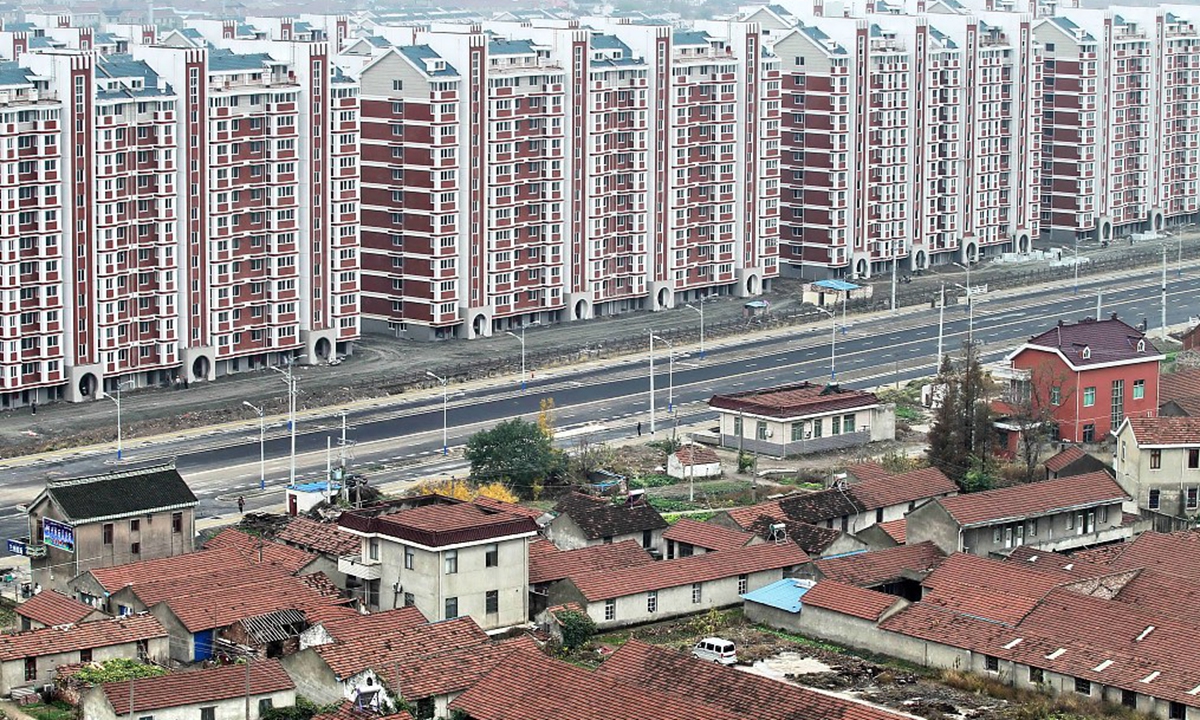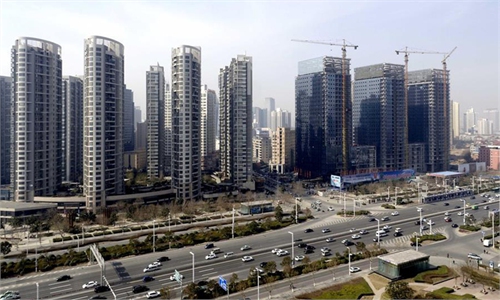
Housing market Photo:VCG
China's local authorities are encouraging state-owned enterprises to buy back newly completed housing to bolster the recovery of local real estate markets, and some local governments themselves have also snapped up properties.
The local government in Suzhou, East China's Jiangsu Province will reportedly buy back about 10,000 units of new housing, bjnews.com.cn reported on Thursday.
In addition to Suzhou, multiple cities and regions have encouraged SOEs to buy housing in bulk, including Zhengzhou in Central China's Henan Province, Jinan in East China's Shandong Province, and many other cities.
The effects have gradually showed up in sales. In September, 610,000 square meters of residential homes changed hands in Zhengzhou, an increase of 71 percent month-on-month, while the transaction area for Jinan city reached 590,000 meters, up 2 percent from the previous month, according to bjnews.com.cn, citing data from CRIC China.
Altay Prefecture in Northwest China's Xinjiang Uygur Autonomous Region is another example. It announced 15 measures on September 27 to promote the healthy development of the local housing market, which encouraged SOEs to acquire housing projects. It also encouraged developers to put their inventories of commercial housing into the subsidized rental housing market.
Yan Yuejin, research director at Shanghai-based E-house China R&D Institute, told the Global Times that the practice will have a comprehensive effect in revitalizing the property market.
Analysts said that it's import to view the situation objectively to understand the policy's implementation and its impact.
Many cities adopted "buying back residential housing projects" as a policy tool in 2022, turning them into public rental housing, Yan said.
Yan said that the practice isn't the same as encouraging SOEs to directly buy new housing in groups, so it is important to prevent misunderstandings about the policy.
Global Times



